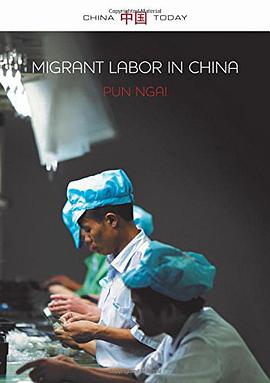Migrant Labor in China
豆瓣
Post-Socialist Transformation
Pun Ngai
简介
Long known as the world's factory, China is the largest manufacturing economy ever seen, accounting for more than 10% of global exports. China is also, of course, home to the largest workforce on the planet, the crucial element behind its staggering economic success. But who are China s workers who keep the machine running, and how is the labor process changing under economic reform?
Pun Ngai, a leading expert in factory labor in China, charts the rise of China as a world workshop and the emergence of a new labor force in the context of the post-socialist transformations of the last three decades. The book analyzes the role of the state and transnational interests in creating a new migrant workforce deprived of many rights and social protection. As China increases its output of high-value, high-tech products, particularly for its own growing domestic market of middle-class consumers, workers are increasingly voicing their discontent through strikes and protest, creating new challenges for the Party-State and the global division of labor.
Blending theory, politics, and real-world examples, this book will be an invaluable guide for upper-level students and non-specialists interested in China s economy and Chinese politics and society.
contents
1. China and its Labor in the Neoliberal World 1
2. Capital Meets State: Re-emergence of the Labor Market and Changing Labor Relations 18
3. Building China: Struggle of Construction Workers 41
4. Making and Unmaking of the New Chinese Working Class 57
5. Spatial Politics: Production and Social Production of the Dormitory Labor Regime 83
6. Monopoly Capital in China: Foxconn Experience and Chinese Workers 105
7. Radicalization and Collective Action of the New Chinese Working Class 134